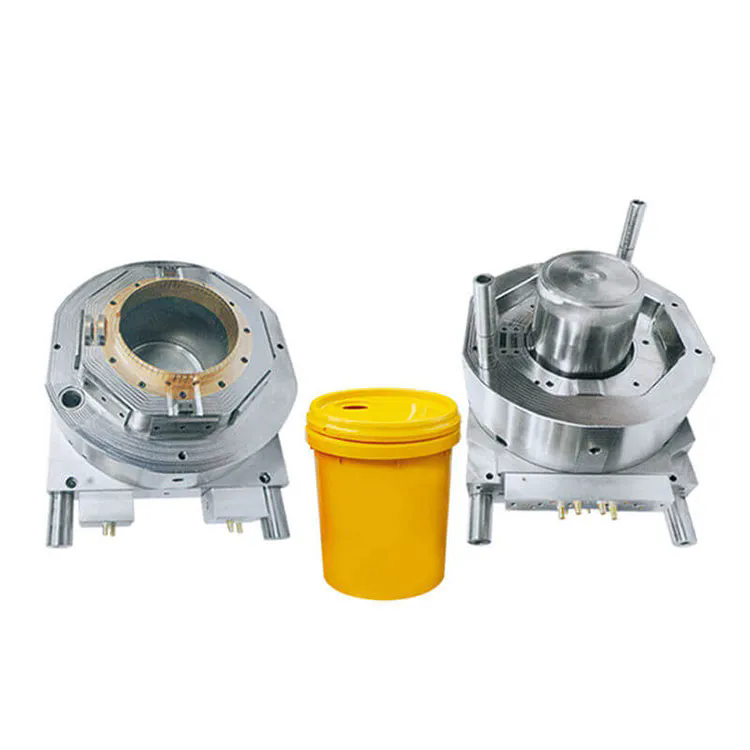Is Investing in Plastic Injection Molding the Right Choice for Your Business?
2024-12-03
In the world of manufacturing, precision, efficiency, and cost-effectiveness are the driving forces behind successful production processes. One such process that has proven its worth across various industries is plastic injection molding. But the question remains: Is investing in plastic injection molding the right choice for your business?
What Is Plastic Injection Molding?
Plastic injection molding is a manufacturing process used to produce plastic parts by injecting molten plastic into a mold cavity. The mold is created from a metal (usually steel or aluminum) that is precisely engineered to shape the plastic into the desired part or product. The process involves heating plastic pellets until they melt, injecting the molten plastic into the mold under high pressure, and allowing it to cool and solidify into the final shape.
This technique is widely used for producing parts in industries such as automotive, consumer goods, electronics, medical devices, packaging, and more. The versatility and efficiency of plastic injection molding have made it one of the most popular methods for large-scale production of plastic components.
The Benefits of Plastic Injection Molding
1. High Production Speed
One of the primary advantages of plastic injection molding is its speed. Once the mold is created, parts can be produced in large quantities in a short period. This is ideal for businesses that need to meet high demand or handle mass production of plastic parts. The speed of the process ensures that products are produced quickly, increasing overall productivity.
2. Cost-Effectiveness for Mass Production
While the initial cost of designing and building the mold can be significant, plastic injection molding becomes highly cost-effective when used for mass production. The cost per unit decreases as the number of units produced increases, making it an excellent choice for businesses that need to produce large quantities of identical parts at a lower cost.
3. Design Flexibility and Complexity
Plastic injection molding allows for high design flexibility, meaning that manufacturers can create parts with intricate and complex geometries. The process can produce components with fine details, thin walls, and undercuts that may be difficult or impossible to achieve using other manufacturing techniques. This level of design freedom allows businesses to create innovative products that stand out in the market.
4. Consistency and Precision
Injection molding ensures a high level of precision, which is crucial in industries that require tight tolerances and consistent part quality. Once the mold is made, the process can repeat with minimal variation, resulting in uniform products across all units. This consistency is especially important in industries such as automotive, electronics, and medical devices, where the quality of each part is vital.
5. Reduced Waste
The injection molding process is highly efficient, with minimal material waste. The process uses exactly the amount of plastic needed for each part, and excess material can be recycled for future use. This makes plastic injection molding an environmentally friendly choice, as it reduces material waste compared to other methods like machining or casting.
Challenges of Plastic Injection Molding
Despite its many benefits, there are some challenges and considerations that businesses must keep in mind before investing in plastic injection molding:
1. High Initial Setup Cost
One of the main drawbacks of plastic injection molding is the initial investment required. Designing and building the mold can be expensive, especially for complex parts. Additionally, the injection molding machines themselves come with a significant upfront cost. However, for businesses that plan to produce large volumes of parts, the cost can be offset over time through economies of scale.
2. Limited to Plastic Materials
Plastic injection molding is specifically designed for plastic materials, so businesses that need to manufacture parts made from other materials, such as metals or ceramics, may need to explore alternative manufacturing methods. However, the variety of plastic materials available for injection molding is vast, offering a wide range of properties such as flexibility, durability, and resistance to heat.
3. Complexity of Mold Design
The process of designing and creating molds for injection molding requires expertise and experience. The design must take into account factors such as part ejection, cooling time, and mold material selection. Poorly designed molds can lead to defects in the finished product and increased production costs. This makes the role of skilled engineers and designers essential when working with plastic injection molding.
4. Longer Lead Times for Tooling
Building the mold for injection molding can take weeks or even months, depending on the complexity of the part. This means that businesses must plan ahead and factor in these lead times when considering plastic injection molding. If a project has tight deadlines, the time needed for tooling could be a limitation.
Is Plastic Injection Molding Right for Your Business?
Plastic injection molding is an excellent choice for businesses that need to produce high-quality, complex plastic parts in large quantities. It offers benefits such as speed, cost-effectiveness, design flexibility, and precision, making it ideal for industries like automotive, electronics, medical, and consumer goods.
However, businesses should carefully consider the initial investment, tooling costs, and lead times required for injection molding. If your business plans to produce large volumes of parts, this manufacturing process can offer significant cost savings in the long run. On the other hand, if your production volume is low, or you need to produce parts from different materials, injection molding might not be the best option.
In conclusion, investing in plastic injection molding could be a game-changer for your business if you're looking to produce high-quality plastic parts efficiently. With the right planning, expertise, and equipment, injection molding can become a reliable and cost-effective solution for mass production and a key factor in the success of your manufacturing operations.



